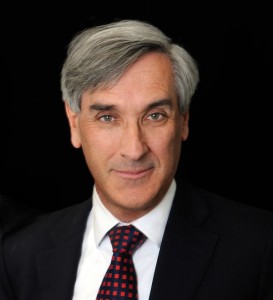Weekly Roundup, 21st June 2021

We begin today’s Weekly Roundup with a look at inheritance tax.
Contents
IHT
In the FT, Emma Agyemang looked at IHT lessons for the UK from other countries.
- Regular readers will be aware that I’m not a fan of IHT, but the FT is more positive on taxation in all its forms.
There’s a recent report from the OECD which highlights what Emma calls the quirks of the UK system:
These range from special exemptions for farmers and country landowners, to the system of taxing the estates of the deceased rather than the people who receive inheritances.
Unsurprisingly, the OECD is also keen that more IHT is levied to pay for the pandemic and to reduce inequality.
Of 36 countries in the report, 24 tax wealth transfers.
- Only 3 of these (including the UK) tax estates rather than recipients.
- Only 7 use a flat IHT rate, whereas 15 use progressive rates.
Most OECD countries have some form of forced heirship where certain people, usually spouses and children, are automatically entitled to a share of the estate. The UK, along with the US and Latvia, stands out in allowing donors to decide to whom they leave their wealth.
The OCED wants countries like the UK to tax recipients, but such a change would face political opposition since most people in the UK want to pass on money to their children.
- The UK’s obsession with housing wealth is part of this.
The financial case for moving to a recipient-based system is weak. The OECD statistics show countries that tax recipients rather than donors do not currently make much more money from it than the UK.
The OECD is also against the UK’s “seven-year rule”, whereby lifetime gifts eventually drop out of your estate.
- They would prefer a lifetime gift allowance, with further gifts subject to tax.
I don’t have a problem with this, other than that the allowance would be very likely to be less than half the value of a London house, which is the practical amount that a lot of people would like to pass on.
The third OECD target is the relief for business and agricultural assets (including shares not listed on a major exchange).
- Scrapping this sounds attractive, but it would create genuine problems for farmers and a lot of family businesses.
I can’t say I mind the quirks of the UK system, and I’d rather see the tax scrapped than reformed.
Inflation
In the FT, John Redwood warned that we should keep an eye on inflation risks.
- Even though central banks are currently playing down the dangers, claiming that the upturn in inflation will be transitory.
They mostly plan to print more money and keep interest rates low.
- The exceptions are the BoE (which will stop QE at the end of 2021) and the Bank of Canada (which is tapering by 25%).
The Fed is staying with its existing level of buying, and the ECB is increasing its programme.
What we now need to consider is whether we have seen peak stimulus? It seems unlikely that any of the major central banks will announce larger programmes and some will allow their programmes to run off or lapse.
John says that markets currently accept the idea that price rises are temporary and wages will be constrained.
That creates a favourable outlook for shares based around large rises in profits and economic recovery.
John is keeping some of the bond money in cash until the situation resolves, and will cut share exposure should sustained inflation become more likely.
Also in the FT, Merryn Somerset Webb reported back from her Cornwall holiday that the local economy was overheating, pointing to a rapid economic recovery in the UK.
I am in the vortex of Britain’s stunning V-shaped recovery. The pent up demand that has been building for the past 16 months has been released directly into its bars and onto its beaches.
Merryn quotes the highest-ever PMI reading of 62.9 and a 10.9% annual rise in house prices, according to Halifax. (( I use the Land Registry Data, which lags by almost two months and shows that prices in my area of London are actually declining ))
She also thinks that the fiscal multiplier (which is usually below 1) may have temporarily increased, boosting the effect of the record peacetime stimulus.
With a higher than usual fiscal multiplier we have not underspent but overspent on ensuring a rapid recovery, even as it has eased the pressures on many disadvantaged people.
Merryn thinks that the UK, with its value bias, is the cheapest developed stock market, and tips Fidelity Special Values.
- She also likes gold.
Crypto
John Authers took a look at bitcoin through the lens of his book of the month – Narrative Economics by Robert Shiller, winner of the 2013 Nobel prize in Economics.
Schiller doesn’t like the term bubble:
It suggests something that is factually wrong, which is that they end in a crash, a one-day event, but that’s not historically accurate. People would imagine if we ask them that the 1929 Crash was all over in one day. It fell on Oct. 28 and then came almost all the way up by 1930 and then went down by 1932.
So I wish we could have another name for a bubble, maybe call it a fad, fads can come back again in a different form.
We had Kewpie dolls in the 1920s, then Beanie Babies, and now meme stocks, NFTs and bitcoin.
Bitcoin, it’s on its third-wave, like disease epidemics that go in waves.
But that doesn’t mean that BTC couldn’t become an asset class:
It’s definitely possible, how did we arrive at the gold standard? Gold is this relatively useless metal, mentioned something like 300 times in the Bible. You can have both long-term and short-term contagions, the contagious idea that gold has value has been going around for thousands of years.
John finds fads or epidemics easier to defend than bubbles:
Many of the most extreme investment manias in history involved the introduction of genuinely exciting new technology, whose valuation was difficult to fix initially. This applies to canals, railroads, and motor cars.
This is not true of tulips or the South Sea Bubble, so bitcoin is not a bubble:
Bitcoin has run into moments of speculative excess that certainly look like bubbles several times already — but the price has gone on to recover. The analogy of a fad, or of a virus that finds a way to mutate, is a better one than a bubble.
Joachim Klement looked at the motivations of those who invest in crypto.
- He had previously looked at a study of motivations for investors from South East Asia, but this time he has found a study of US investors.
The study in South East Asia found that investors in cryptocurrencies are predominantly male and interested in technology. They have a higher degree of financial literacy and learn more about cryptocurrencies.
It’s a similar story in the US.
The main investors are white men with a higher degree of financial literacy. They invest more time in researching cryptocurrencies before they invest in them.
Both groups see crypto as a long-term store of value:
In South East Asia, the desire to save for retirement was a key driver. In the US, retirement savings vehicles such as IRAs and pension funds are much more developed. US investors said that they owned cryptos as a store of value that hedges against a possible decline in their savings.
US crypto investors had longer investment horizons than other investors (6.7 years vs 4.4 years).
Investors in cryptocurrencies are much more long-term oriented and sophisticated than many in the media make them out to be.
The Economist wanted to know what the proliferation of crypto coins are all for?
Fully 10,000 are listed on CoinMarketCap, a website, nearly twice as many as a year ago. Bitcoin accounts for 40% of the total value of all cryptocurrencies today, compared with 70% in January.
Most of the coins are not trying to take BTC’s place.
The purpose of “security” tokens, like that of stocks and bonds, is investment: they represent ownership in firms or other assets, recorded on a distributed ledger. “Utility” tokens, meanwhile, are tradable credits that can be bought and used in exchange for a service [eg. transaction fees on an exchange].
The remainder (779 coins) are bitcoin clones (aspiring to be money) or ether clones (aspiring to provide new functionality).
- Stablecoins “fix” BTC’s volatility by pegging themselves to fiat currencies.
- Other coins are private (BTC’s blockchain is public), or offer faster and/or cheaper transactions.
- Others have no cap on supply or a supply that shrinks when coins are regularly “burned”.
- Coins like Cardano and Tron use “proof of stake”
- Here blockchain validators are rewarded in proportion to the number of coins they lock into an escrow wallet.
- This saves on energy and hardware but encourages hoarding (which limits liquidity) and concentration over decentralisation.
But for every flaw that the clones try to fix, a desirable attribute of bitcoin seems to be lost. Stablecoins, for instance, require users to trust both the issuer (which must hold hard cash in reserve) and a government, defeating crypto’s original anarchic aims.
Meanwhile, ether supports decentralised finance (DeFi).
- Here, “smart contracts” support financial transactions like making loans and selling insurance – without a middle man.
DeFi remains small. But it is growing fast, and bitcoin cannot accommodate smart contracts. Its first-mover advantage and scarcity make bitcoin likely to remain attractive as a speculative asset. Yet that could prove poor consolation.
Quick Links
I have six for you this week, the first four from The Economist:
- The newspaper warned that the pandemic might not be accelerating automation
- And said that retail parks are well-placed to weather lockdowns.
- The Economist also wondered whether America’s housing boom would lead to another financial crisis.
- And documented some hard truths about SoftBank.
- Alpha Architect looked at the performance of volatility-managed portfolios
- And asked whether hedge funds can successfully time factors.
Until next time.






























